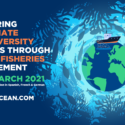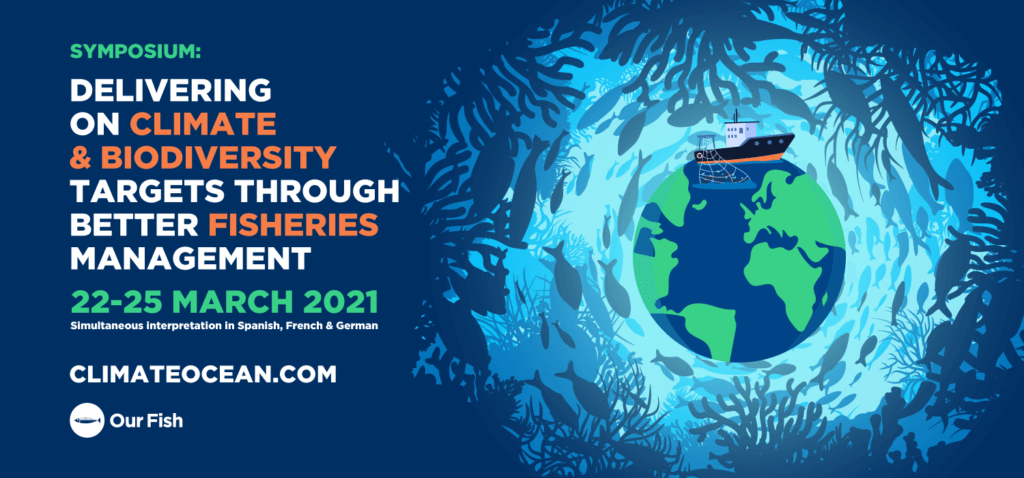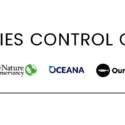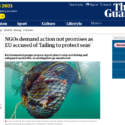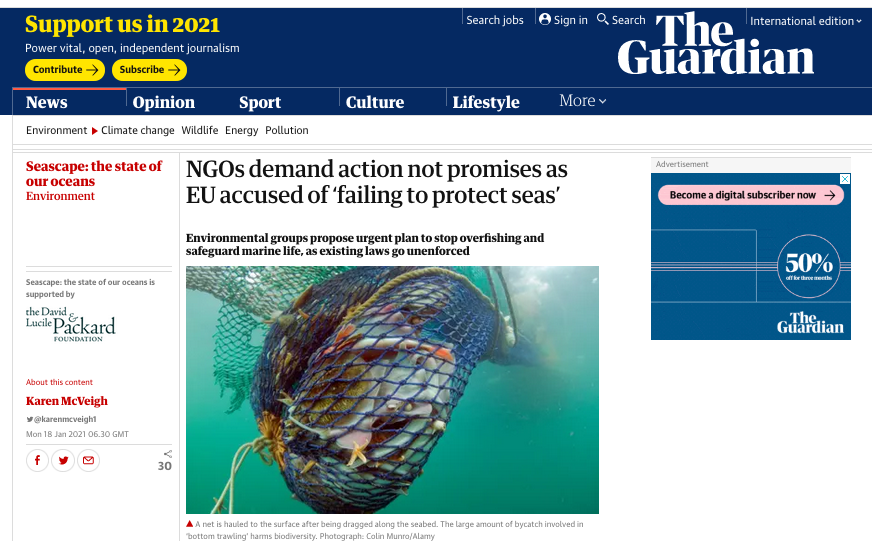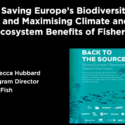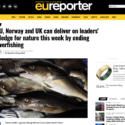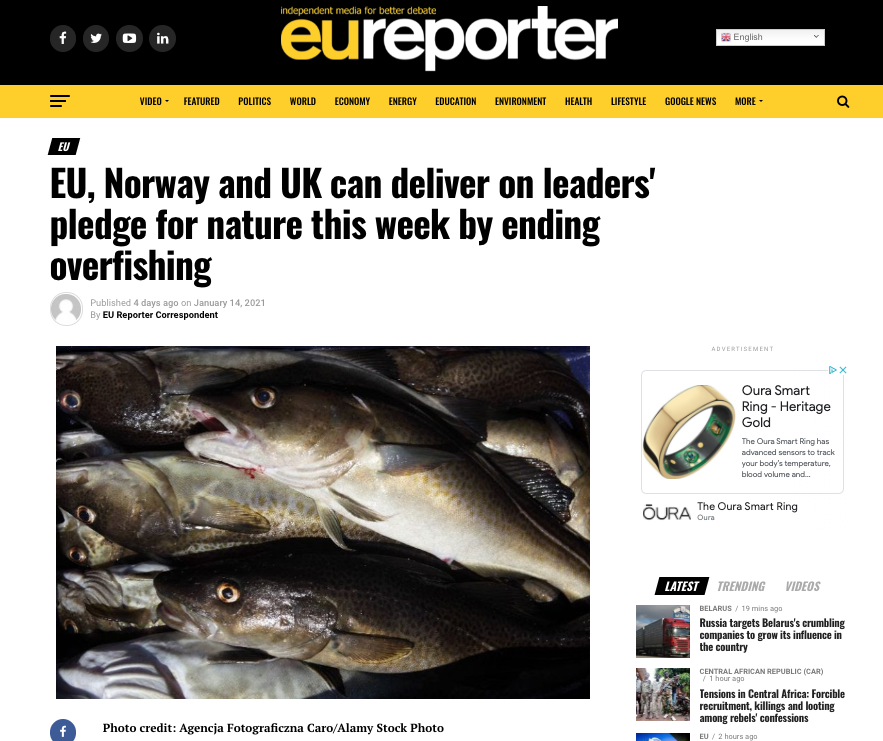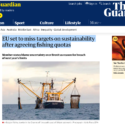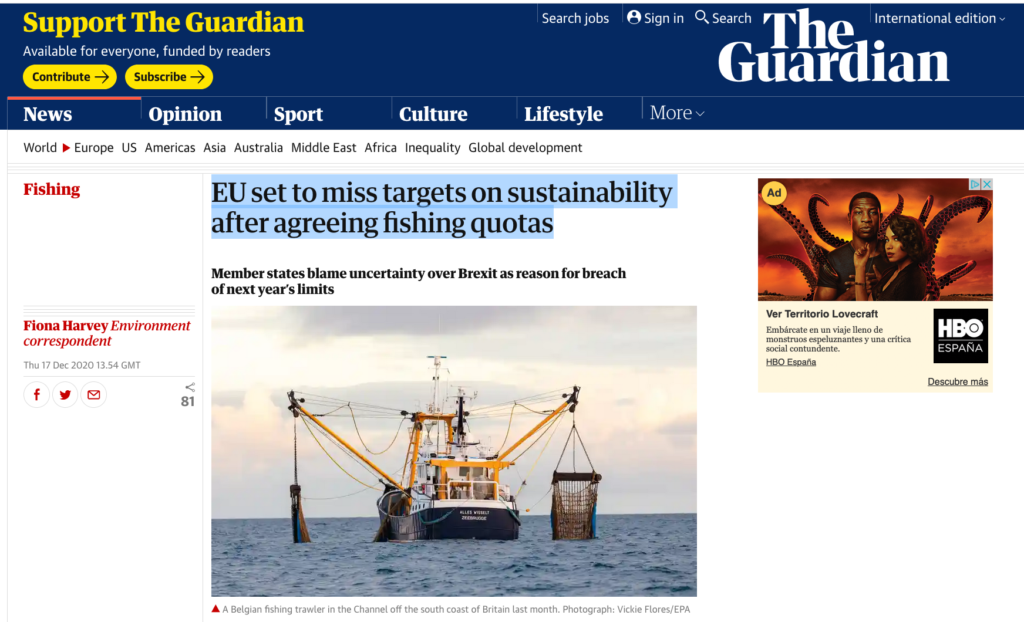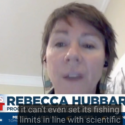Our Fish invites you to join us for Delivering on Climate & Biodiversity Targets Through Better Fisheries Management, a four-day virtual symposium exploring how ending overfishing is critical for realising the EU’s response to the biodiversity and climate emergency. The EU has a unique opportunity to play a leading role on the world stage during both the UNFCCC COP 26 in Glasgow and the Convention on Biological Diversity COP 15 in Kunming. In advance and in preparation for these global events, we would greatly value your participation in the following:
Note: It is necessary to register for all events separately.
Monday 22nd March 2021, 16-17.30 CET/ 08-09:30 PST
Science webinar: Ending overfishing delivers for climate mitigation, adaptation, biodiversity and people
Click presentation title to download.
- Rashid Sumaila, Professor and Director of the Fisheries Economics Research Unit at the University of British Columbia Institute for the Oceans and Fisheries: End Overfishing and Increase the Resilience of the Ocean to Climate Change (ppt)
- Charlotte de Fontaubert, Global Lead for the Blue Economy at The World Bank: Combined impacts of overfishing on greenhouse gas emissions, fish stock health and poverty (ppt)
- William Cheung, Professor, Changing Ocean Research Unit, at the University of British Columbia Institute for the Oceans and Fisheries: Climate risk adaptation for fish stocks and fisheries production through fisheries management (ppt)
- Angela Martin, Research Fellow, Centre for Coastal Research, University of Agder, Norway: Reducing C02 emissions through recovery of fish stocks: a fisheries life cycle assessment (ppt)
- Q&A
Tuesday 23rd March 2021, 16-17.30 CET / 08-09:30 PST
Science webinar: Ecosystem-based fisheries, building resilience and helping small-scale fishers
- Erica Ferrer: NSF Graduate Student Researcher, UC San Diego at Scripps Institution of Oceanography, California, USA: Theory and empirics suggest that an end to overfishing will help small-scale fisheries flourish in a warmer world (pdf)
- Sebastián Villasante, Professor, Department of Applied Economics, University of Santiago de Compostela, Spain: Managing European fisheries through ecosystem interactions would improve climate resilience (ppt)
- Dr. Emma Cavan, Research Fellow, Department of Life Sciences, Imperial College London: Fish, Fisheries and carbon sequestration (ppt)
- Ibrahim Issifu, Postdoctoral Research Fellow, The Institute for the Oceans and Fisheries, University of British Columbia: Impacts of Climate Change, Overfishing and Pollution on Fisheries: A Risk Management and Solution Policy Framework (ppt)
Wednesday 24th March 2021, 15:00-16:30 CET / 07-08:30 PST
Workshop on climate guidelines for fisheries – policy-makers and fisheries managers only
A range of evidence will be presented by scientists during the first two scientific webinars, while this third workshop will give a brief overview of that science, before breakout groups will explore the policy pathways and workshop a proposed checklist for realising climate action through better fisheries management.
- Prof. Alex Rogers, Director of Science at REV Ocean: The carbon cycle, life in the ocean and climate mitigation
- Ivonne Ortiz, Senior Research Scientist and Associate Director, Cooperative Institute for Climate, Ocean and Ecosystem Studies, University of Washington: A checklist for policy-makers to realise fisheries management as climate action
- Workshop in breakout groups with scientists and policy-makers
Thursday 25th March 2021, 14:00-15:00 CET / 06-07:00 PST
Fireside-chat with EU decision-makers
This fireside-chat is the fourth event in a four-day virtual symposium exploring how ending overfishing is critical to realising the EU response to the biodiversity and climate emergency. The fireside-chat will present both the science and pathway to decision-makers to help pave a way forward as they prepare for UNFCCC COP 26 in Glasgow, and the CBD COP 15 in Kunming.
- Rashid Sumaila, Professor and Director of the Fisheries Economics Research Unit at the University of British Columbia Institute for the Oceans and Fisheries
- Commissioner for the Environment, Oceans & Fisheries Virginijus Sinkevicius
- Ska Keller, Member of European Parliament, Co-President of the European Greens/EFA
- Farah Obaidullah, Ocean Advocate, Founder of Women4Oceans
